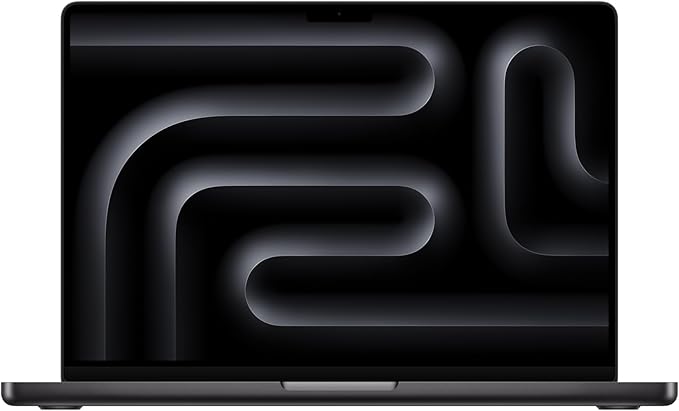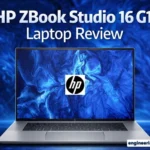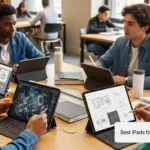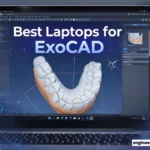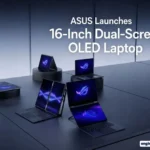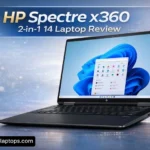If you’re an accounting or finance student, your laptop is more than just a study tool — it’s your everyday partner for handling spreadsheets, assignments, online classes, and research projects. You don’t necessarily need a gaming powerhouse, but you do need a laptop that’s reliable, lightweight, has long battery life, and won’t slow down when you’ve got 20 Chrome tabs and three Excel sheets open.
In this guide, I’ll walk you through the best laptops for accounting and finance students in 2025, based on real-world usability, student budgets, and long-term value. I’ll also break down the pros and cons of each pick so you can decide what suits your study style and wallet.
What to Look for in a Laptop for Accounting & Finance
Before diving into the top laptops, here are the key features that matter most for accounting and finance students:
- Processor (CPU): Go for at least Intel Core i5, AMD Ryzen 5, or Apple M3/M4. These will handle multitasking smoothly.
- RAM: 8GB is the bare minimum, but 16GB is highly recommended if you want a smoother, future-proof experience.
- Storage: 256GB SSD is okay, but 512GB SSD is ideal for storing spreadsheets, e-books, and project files.
- Battery Life: Aim for at least 8 hours of real-world usage. You’ll thank yourself during long study days.
- Keyboard: Comfortable typing is crucial for those marathon Excel sessions.
- Portability: Look for something lightweight (under 3 lbs if possible) with a solid build for carrying around campus.
Also Read: Best Laptops for QuickBooks & FreshBooks
Best Laptops for Accounting & Finance Students in 2025
1. Apple MacBook Air (M3/M4) – Best Overall Choice
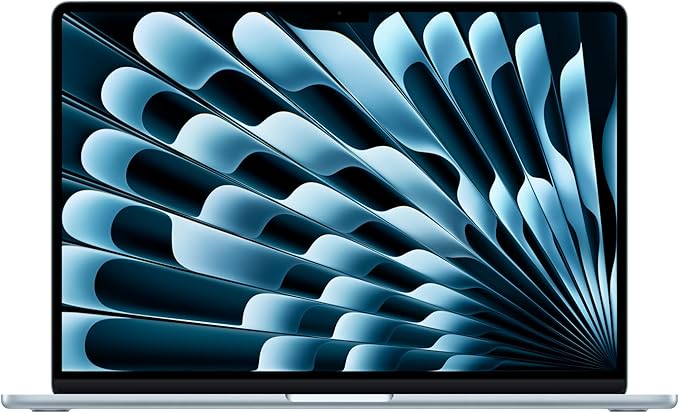
The MacBook Air remains a top favorite among students thanks to its lightweight design, incredible battery life, and silent performance. It’s a perfect fit if most of your work revolves around spreadsheets, web apps, and note-taking.
Key Specs:
- Apple M3 or M4 chip
- 16GB RAM (recommended)
- 512GB SSD
- 13.6” Liquid Retina display
- Up to 15–18 hours of battery life
Pros:
- Exceptional battery life
- Super light and portable
- Excellent keyboard & trackpad
- macOS is stable and hassle-free
Cons:
- Limited ports (dongles often needed)
- Pricier than some Windows alternatives
- Some accounting software may be Windows-only
2. Dell XPS 13/14 – Best Premium Windows Laptop
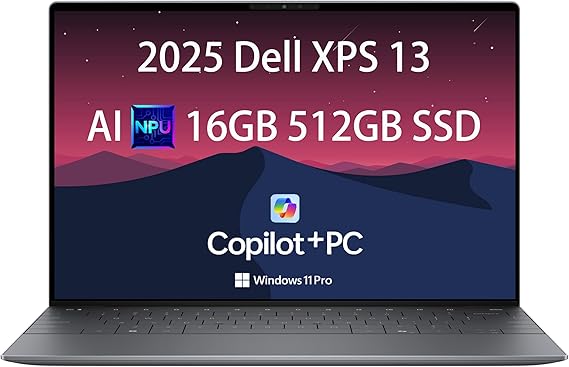
The Dell XPS line is known for its premium build, sharp displays, and solid performance. If you want a Windows machine that feels as refined as a MacBook, this is it.
Key Specs:
- Intel Core i5/i7 (latest gen)
- 16GB RAM
- 512GB SSD
- 13–14” FHD+/OLED display
- 8–12 hours of battery life
Pros:
- Gorgeous screen options (OLED available)
- Premium aluminum build
- Compact and lightweight
Cons:
- Can get expensive at higher specs
- Fewer ports compared to budget laptops
3. Lenovo ThinkPad X1 Carbon – Best for Typing & Durability
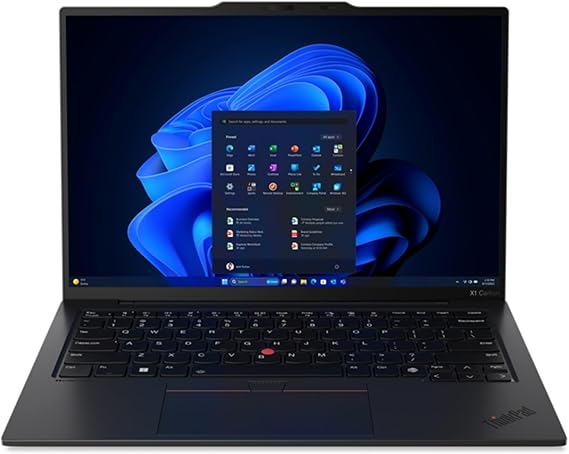
If you’re the kind of student who types a lot of notes or works extensively in Excel, the ThinkPad X1 Carbon is a dream. Its keyboard is legendary, and it’s built to last.
Key Specs:
- Intel Core i5/i7 or AMD Ryzen
- 16GB RAM
- 512GB SSD
- 14” FHD/2.8K display
- 9–12 hours of battery life
Pros:
- Best-in-class keyboard
- Rugged and durable design
- Excellent security features (fingerprint reader, TPM)
Cons:
- Business-like design (not flashy)
- High-end configs can be pricey
4. HP Spectre x360 – Best 2-in-1 for Flexibility
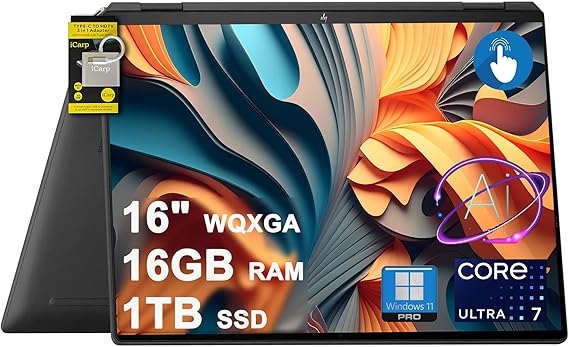
If you like the idea of a tablet and laptop in one, the HP Spectre x360 is a fantastic choice. Great for reading PDFs, annotating lectures with a stylus, and working in tablet mode when you’re tired of typing.
Key Specs:
- Intel Core i5/i7 or Core Ultra
- 16GB RAM
- 512GB SSD
- 13–14” OLED display
- 9–12 hours battery
Pros:
- Convertible design with stylus support
- High-quality display
- Solid battery life
Cons:
- Heavier in tablet mode
- Slightly more expensive than clamshell laptops
5. Lenovo IdeaPad Slim / Acer Aspire 5 – Best Budget Option
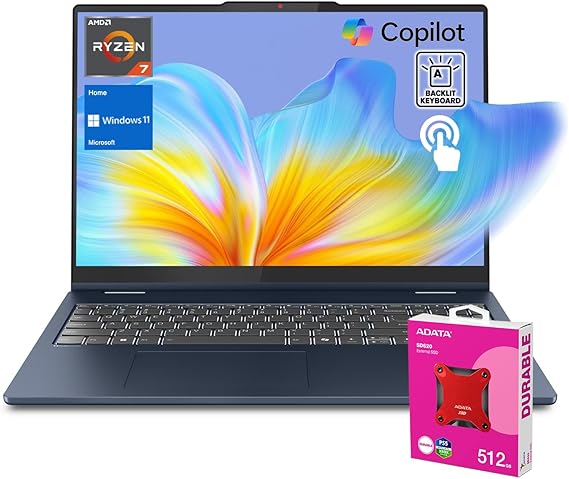
Not everyone needs to spend $1,200+. If you’re on a tighter budget, the IdeaPad Slim and Acer Aspire 5 deliver great everyday performance for spreadsheets, online classes, and research.
Key Specs:
- Intel Core i3/i5 or AMD Ryzen 3/5
- 8–16GB RAM
- 256–512GB SSD
- 14–15.6” FHD display
- 6–9 hours battery
Pros:
- Affordable and reliable
- Good port selection
- Easy to upgrade in some models
Cons:
- Build quality is average
- Display quality varies by model
6. Chromebook Plus (Acer / Lenovo) – Best Cloud-Based Option
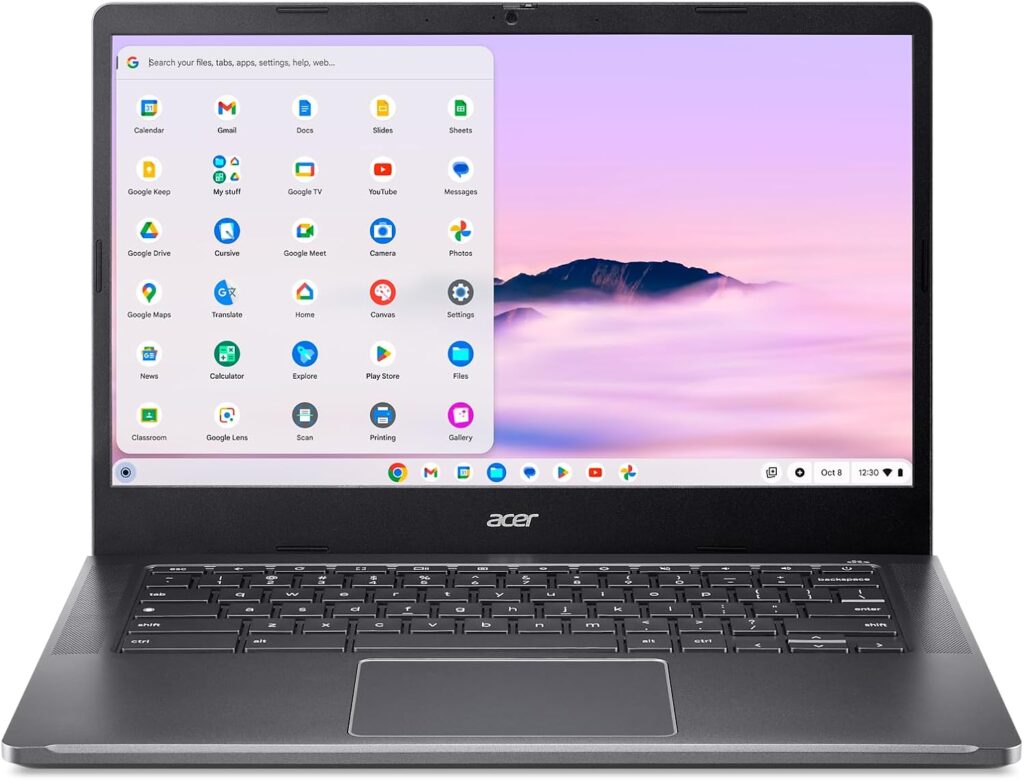
If your school mostly uses Google Workspace and web-based apps, a Chromebook Plus is a cost-effective option. It’s not for everyone, but if your coursework is mostly online, it’s a practical pick.
Key Specs:
- Intel or AMD CPU
- 8GB RAM
- 128–256GB storage (cloud-focused)
- 14” FHD display
- 10+ hours of battery
Pros:
- Very affordable
- Long battery life
- Lightweight and easy to use
Cons:
- Not ideal for Windows-only apps
- Limited offline software options
Quick Comparison Table
| Laptop | Best For | Recommended Specs | Pros | Cons |
|---|---|---|---|---|
| MacBook Air (M3/M4) | Best overall | M3/M4, 16GB, 512GB | Battery, lightweight | Expensive, limited ports |
| Dell XPS 13/14 | Premium Windows | i5/i7, 16GB, 512GB | Build, OLED screen | Pricey |
| Lenovo ThinkPad X1 Carbon | Typing & durability | i5/i7, 16GB, 512GB | Keyboard, reliability | Business look |
| HP Spectre x360 | Flexible use | i5/i7, 16GB, 512GB | 2-in-1 design | Heavier tablet mode |
| IdeaPad / Aspire 5 | Budget | Ryzen 5/i5, 8–16GB, 256–512GB | Value for money | Average build |
| Chromebook Plus | Cloud-first users | 8GB, 128GB | Affordable, battery | Limited compatibility |
Also Read: Best Laptops for CRM & ERP
FAQs
No — integrated graphics are more than enough. Save your money for more RAM or storage.
Yes, but 16GB is much better if you want a smooth experience with multitasking and big spreadsheets.
Both work. MacBooks offer excellent battery life and build quality, while Windows laptops are often more affordable and compatible with legacy software.
Yes, if your coursework is cloud-based (Google Sheets, web apps). But if your school uses Windows-only tools, you’ll need a Windows laptop.
Final Thoughts
For most accounting and finance students, the MacBook Air (M3/M4) or Dell XPS will strike the right balance between portability, performance, and longevity. If you’re budget-conscious, the Lenovo IdeaPad or Acer Aspire 5 will do the job without breaking the bank. And if you want maximum typing comfort, the ThinkPad X1 Carbon is hard to beat.
At the end of the day, your laptop should make your studies easier, not harder. Focus on RAM, storage, and battery life — those are the specs that will actually matter during long nights of studying or balancing financial models.

